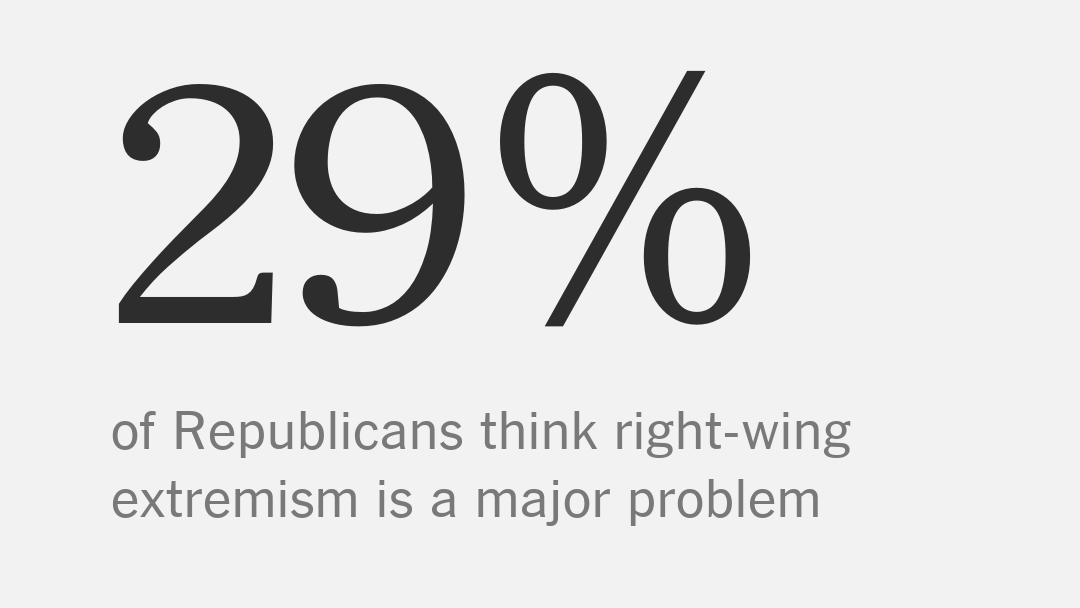
Two separate polls released this week found that a wide majority of Americans supported prosecuting the rioters who overtook the Capitol on Jan. 6, and wanted steps to be taken to prevent further extremist violence.
But it is a substantial minority on these questions — a subset of respondents, aligned with the Republican Party, who see the violence as justified and President Biden’s election victory as irredeemably fraudulent — that may be the most noteworthy finding from these surveys, released by Monmouth University on Wednesday and the Pew Research Center on Thursday.
There’s near consensus that the perpetrators of the violence on Jan. 6 should be held to account. About seven in 10 respondents to the Pew poll called it “very important” for them to be found and prosecuted, and the number saying it was at least “somewhat important” was closer to nine in 10.
But 54 percent of Republicans said that too much attention was being paid to Jan. 6, the poll found. And according to the Monmouth survey, two in every five Republicans said they considered the anger that led to the violence to have been at least partly justified.
Sixty-five percent of Republicans in that poll said that Mr. Biden had won the November election because of widespread fraud, and three in 10 said they would never accept him as their president.
When it comes to investigating the Capitol attack and prosecuting those responsible, there’s broad appetite for federal action. But bipartisan consensus breaks down over what a federal commission ought to be investigating.
Monmouth found that more than three in four Republicans agreed with a vast majority of Democrats that the Capitol Police’s failures to prepare for Jan. 6 deserved to be investigated, suggesting a possible area of politically convenient common ground. And 70 percent of Republicans said it would make sense for a commission to look into the growth in militant groups across the country (though the question notably did not specify the political persuasions of those groups).
But when it comes to the role of white nationalism — which many experts have called a motivating factor for the rioters — 45 percent of Republicans said they were against having a commission look into its role in inciting the violence.
In a separate question on the Monmouth poll, about six in 10 Republicans said white nationalism wasn’t a problem in the country.
The Pew poll found that Americans were now considerably more concerned about political violence in the country than about violent extremism in the name of Islam.
But there was no consensus about where the threat is really coming from: Respondents were as likely to say left-wing extremism was a worrisome threat as they were to say extremism on the right was. A slim majority called each one a major problem, and another one in three people said it was a minor problem. Only about three in 10 Republicans said right-wing extremism represented a major problem, roughly the same share as Democrats who said so about left-wing extremists.
Did you miss our previous article...
https://trendinginthenews.com/usa-politics/north-korea-cuts-diplomatic-ties-with-malaysia-over-us-extradition






